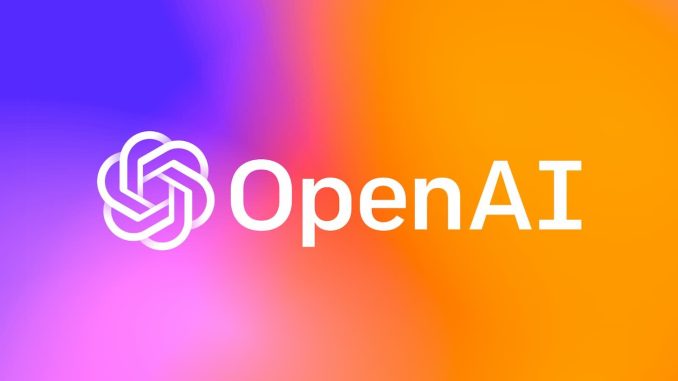
Introduction to Sora and OpenAI
The world of artificial intelligence just got a lot more interesting with the emergence of Sora, a groundbreaking new AI developed by OpenAI. As rumors swirl around its capabilities and potential uses, tech enthusiasts and industry leaders alike are buzzing with excitement—and concern—about what this means for the future. With whispers of leaked information adding to the intrigue, Sora is poised to change the landscape of AI as we know it. But what exactly makes this new artificial intelligence so special? Let’s dive into the fascinating world of Sora and explore its implications for various sectors across our society.
What is Artificial Intelligence?
Artificial intelligence, often abbreviated as AI, refers to the simulation of human intelligence processes by machines. These systems are designed to think and learn like humans but operate on a different level entirely.
AI encompasses various technologies, including machine learning, natural language processing, and computer vision. Each plays a crucial role in enabling computers to perform tasks that typically require human intellect.
The essence of AI lies in its ability to analyze vast amounts of data quickly. This capability allows it to make predictions or decisions based on patterns detected in the information processed.
Current applications range from simple virtual assistants to complex algorithms powering industries like finance and healthcare. As technology evolves, so does the potential for AI’s influence across multiple sectors.
The Purpose of Sora and Its Capabilities
Sora is an innovative leap in the realm of artificial intelligence, designed with versatility and efficiency at its core. This new artificial intelligence can analyze vast datasets quickly, making it invaluable for research and data-driven decision-making.
One standout capability of Sora lies in its natural language processing. It understands context and nuances, allowing it to engage in meaningful conversations or generate human-like text based on prompts.
Moreover, Sora is equipped with advanced machine learning algorithms that enable continuous improvement over time. The more it interacts with users or processes information, the smarter it becomes.
From automating mundane tasks to enhancing creative endeavors like writing and art generation, Sora’s potential applications are boundless. Its ability to adapt across various sectors marks a significant step forward for AI technology as we know it today.
Controversies Surrounding Sora’s Leaked Information
The recent leak of information regarding Sora has ignited a firestorm of debate. Many are questioning the ethics behind releasing details about a new artificial intelligence before its official launch. Critics argue that this undermines OpenAI’s mission to develop responsible AI technologies.
Concerns have also emerged about potential misuse. The capabilities of Sora, once fully realized, could be wielded for harmful purposes if they fall into the wrong hands. This raises alarms among cybersecurity experts and policymakers alike.
Transparency is another hot topic in these discussions. While many advocate for open access to technological advancements, others believe that certain information should remain confidential until safety measures are established.
The implications of such leaks extend beyond just technology; they touch upon privacy rights and intellectual property issues as well, making it a complex web to untangle in today’s digital landscape.
Potential Uses of Sora in Different Industries
Sora, the new artificial intelligence developed by OpenAI, holds immense potential across various industries. In healthcare, it could revolutionize diagnostics by analyzing patient data at lightning speed, aiding doctors in making informed decisions.
In finance, Sora’s algorithms can anticipate market trends and optimize investment strategies. This capability empowers investors to make smarter choices with reduced risks.
The education sector stands to benefit as well. With personalized learning experiences tailored to each student’s needs, Sora can enhance engagement and improve outcomes for learners of all ages.
Additionally, in manufacturing and logistics, Sora may streamline operations through predictive maintenance and efficient supply chain management.
Retailers might also leverage its capabilities for enhanced customer service experiences by predicting shopping behaviors and preferences. The versatility of Sora positions it as a game-changer across numerous fields.
Ethical Concerns and Regulations for AI Technology
The rapid advancement of artificial intelligence brings forth significant ethical concerns. With Sora now in the spotlight, discussions about AI’s impact on society are more pressing than ever.
One major concern revolves around privacy. As AI systems gather and analyze vast amounts of data, ensuring that user information is protected becomes crucial.
Bias in algorithms also raises eyebrows. If not carefully monitored, AI can perpetuate existing prejudices, leading to unfair outcomes across various sectors.
Additionally, the potential for job displacement cannot be overlooked. Automation may streamline processes but could leave many workers vulnerable.
Regulatory frameworks are essential to address these challenges effectively. Policymakers must craft guidelines that ensure transparency and accountability while fostering innovation in technology like Sora. Balancing progress with ethical responsibility will shape the future landscape of artificial intelligence significantly.
Conclusion: The Future of Artificial Intelligence with Sora and OpenAI
The landscape of artificial intelligence is ever-evolving, and Sora represents a significant leap forward. Developed by OpenAI, this new artificial intelligence showcases the potential to transform industries across the globe. Its capabilities could redefine how we interact with technology, making processes more efficient and intuitive.
As organizations begin to explore Sora’s functionalities, we may witness groundbreaking applications in sectors like healthcare, finance, education, and beyond. However, with great power comes great responsibility. The controversies surrounding its leaked information highlight essential discussions about privacy and security in AI development.
Ethical considerations will continue to be at the forefront as societies adapt to these advancements. Striking a balance between innovation and accountability is crucial for harnessing the benefits of AI while safeguarding against misuse.
With OpenAI leading the charge into this new frontier of artificial intelligence through Sora, it’s clear that we are only scratching the surface of what’s possible. As businesses embrace this technology, collaboration among developers, regulators, and users will shape a future where AI can thrive responsibly.